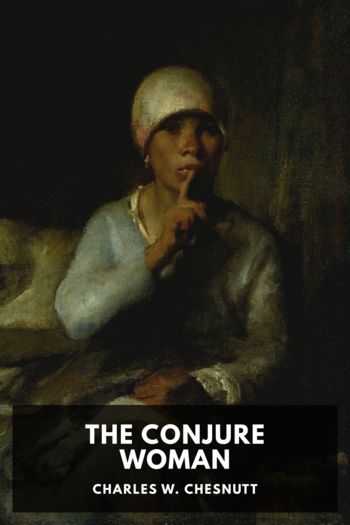Commentaries on the Gallic War, Julius Caesar [the chimp paradox TXT] 📗

- Author: Julius Caesar
Book online «Commentaries on the Gallic War, Julius Caesar [the chimp paradox TXT] 📗». Author Julius Caesar
But judgment was not wanting to the barbarians; for their leaders ordered the officers to proclaim through the ranks “that no man should quit his place; that the booty was theirs, and for them was reserved whatever the Romans should leave; therefore let them consider that all things depended on their victory.” Our men were equal to them in fighting, both in courage and in number, and though they were deserted by their leader and by fortune, yet they still placed all hope of safety in their valour, and as often as any cohort sallied forth on that side, a great number of the enemy usually fell. Ambiorix, when he observed this, orders the command to be issued that they throw their weapons from a distance and do not approach too near, and in whatever direction the Romans should make an attack, there give way (from the lightness of their appointments and from their daily practice no damage could be done them); but pursue them when betaking themselves to their standards again.
Which command having been most carefully obeyed, when any cohort had quitted the circle and made a charge, the enemy fled very precipitately. In the meantime, that part of the Roman army, of necessity, was left unprotected, and the weapons received on their open flank. Again, when they had begun to return to that place from which they had advanced, they were surrounded both by those who had retreated and by those who stood next them; but if, on the other hand, they wished to keep their place, neither was an opportunity left for valour, nor could they, being crowded together, escape the weapons cast by so large a body of men. Yet, though assailed by so many disadvantages, and having received many wounds, they withstood the enemy, and, a great portion of the day being spent, though they fought from daybreak till the eighth hour, they did nothing which was unworthy of them. At length, each thigh of T. Balventius, who the year before had been chief centurion, a brave man and one of great authority, is pierced with a javelin; Q. Lucanius, of the same rank, fighting most valiantly, is slain while he assists his son when surrounded by the enemy; L. Cotta, the lieutenant, when encouraging all the cohorts and companies, is wounded full in the mouth by a sling.
Much troubled by these events, Q. Titurius, when he had perceived Ambiorix in the distance encouraging his men, sends to him his interpreter, Cn. Pompey, to beg that he would spare him and his soldiers. He, when addressed, replied, “If he wished to confer with him, it was permitted; that he hoped what pertained to the safety of the soldiers could be obtained from the people; that to him however certainly no injury would be done, and that he pledged his faith to that effect.” He consults with Cotta, who had been wounded, whether it would appear right to retire from battle, and confer with Ambiorix; saying that he hoped to be able to succeed respecting his own and the soldiers’ safety. Cotta says he will not go to an armed enemy, and in that perseveres.
Sabinus orders those tribunes of the soldiers whom he had at the time around him, and the centurions of the first ranks, to follow him, and when he had approached near to Ambiorix, being ordered to throw down his arms, he obeys the order and commands his men to do the same. In the meantime, while they treat upon the terms, and a longer debate than necessary is designedly entered into by Ambiorix, being surrounded by degrees, he is slain. Then they according to their custom shout out “Victory,” and raise their war-cry, and, making an attack on our men, break their ranks. There L. Cotta, while fighting, is slain, together with the greater part of the soldiers; the rest betake themselves to the camp from which they had marched forth, and one of them, L. Petrosidius, the standard bearer, when he was overpowered by the great number of the enemy, threw the eagle within the entrenchments and is himself slain while fighting with the greatest courage before the camp. They with difficulty sustain the attack till night; despairing of safety, they all to a man destroy themselves in the night. A few escaping from the battle, make their way to Labienus at winter-quarters, after wandering at random through the woods, and inform him of these events.
Elated by this victory, Ambiorix marches immediately with his cavalry to the Aduatuci, who bordered on his kingdom; he halts neither day nor night, and orders the infantry to follow him closely. Having related the exploit and roused the Aduatuci, the next day he arrived among the Nervii, and entreats “that they should not throw away the opportunity of liberating themselves forever and of punishing the Romans for those wrongs which they had received from them”; he tells them “that two lieutenants have been slain, and that a large portion of the army has perished; that it was not a matter of difficulty for the legion which was wintering with Cicero to be cut off, when suddenly assaulted; he declares himself ready to cooperate in that design.” He easily gains over the Nervii by this speech.
Accordingly, messengers having been forthwith despatched to the Centrones, the Grudii, the Levaci, the Pleumoxii, and the Geiduni, all of whom are under their government, they assemble as large bodies as they can, and rush unexpectedly to the winter-quarters of Cicero, the report of the death of Titurius not having as yet been conveyed to him. That also occurred to him which





Comments (0)